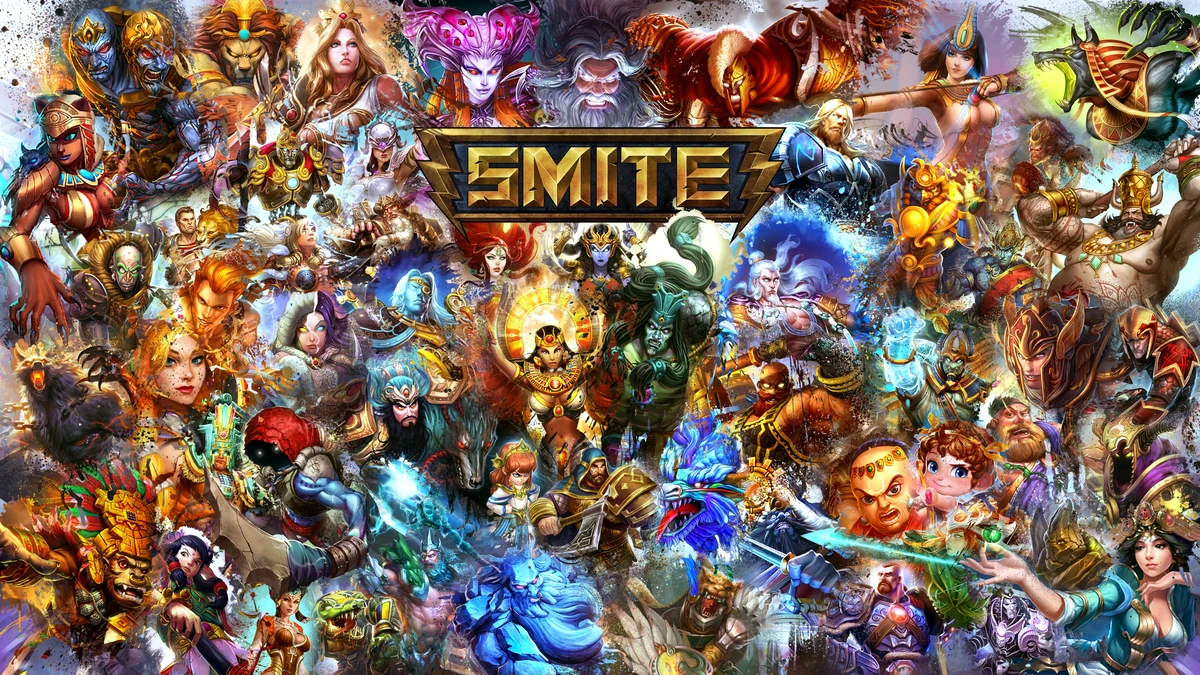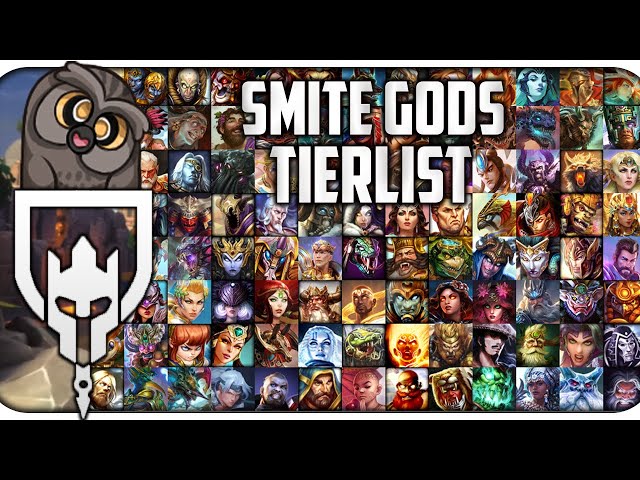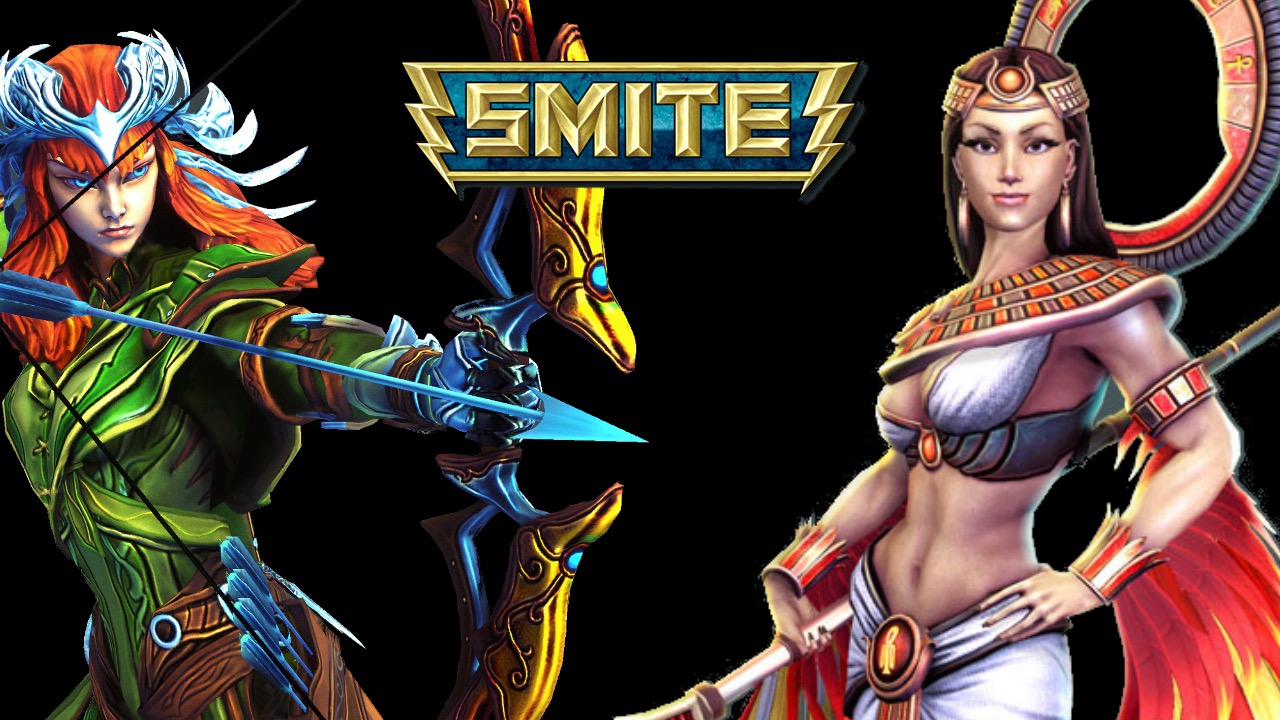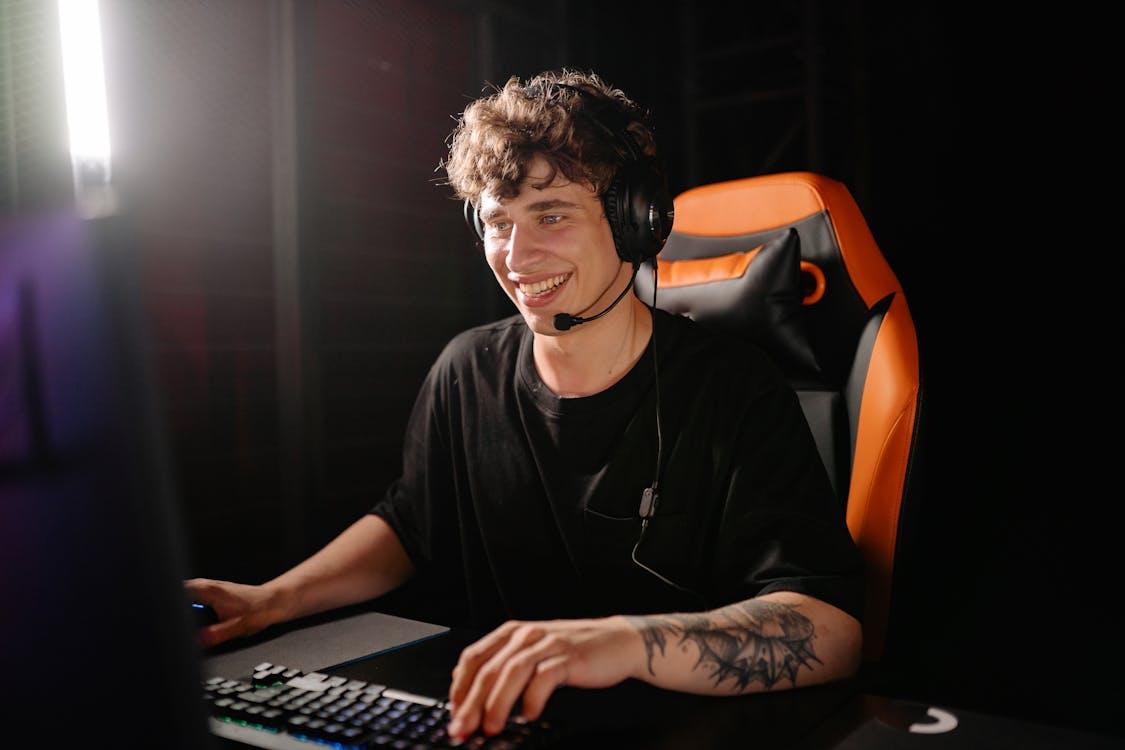Knowing one of the more than one hundred gods to worship can be intimidating.
This ultimate tier list attempts to assist you in navigating the intricacies of god selection so that you can gain an advantage in every game.
Find the greatest gods to help you win, from strong metapicks to underdog selections.
Understanding the Tier List
Why Is the Tier List Used?
A tier list’s main objective is to rank gods according to their effectiveness, adaptability, and influence on the meta. This aids players in determining which gods are best for winning games and moving up the ranks.
Things That Affect Rankings
The order of gods on the tier list is determined by several factors. These include current shifts in the balance, patterns in professional play, comments from the public, and statistical performance information. A deity’s powers, interactions with other gods, and counters all have important functions.
Tier Categories
Gods are usually classified from S+ (the best, must-pick gods) to D (the poor performers, seldom picked gods).
Lower-tier gods may struggle in the current meta, but they can still be effective in certain circumstances or with the correct team composition.
S-tier gods, on the other hand, are very powerful and frequently crucial in matches.

Tier List Fundamentals
Relevance of Metadata
A tier list’s meta-relevance is a crucial component. Patches, balancing adjustments, and changing tactics cause the meta to fluctuate continuously. By keeping up with the meta, players are ensured to select the best gods for the game’s current state.
Rankings According to Roles
Assassin, Guardian, Hunter, Mage, and Warrior are some jobs commonly used to categorize gods. Within a team, each function has specific criteria and duties. For optimal team composition and strategy, it is essential to comprehend the advantages and disadvantages of gods in their corresponding roles.
Adaptability and Flexibility
High-tier gods usually have some degree of adaptability and versatility, which makes them suitable for different team configurations and tactics. They are dependable options for players because they can function well in a variety of game types and against a wide range of opponents.
Player Preference and Skill
Although tier lists offer a broad framework, individual player aptitude and taste also matter greatly. A god’s efficacy can change depending on how successfully a player uses their skills and techniques. Sometimes a god’s comfort level and familiarity with you surpass their tier ranking, improving your match performance.

Tier List Criteria
Achievement and Success Rate
A crucial factor in the god ranking process is their effectiveness, which is gauged by their win percentage in different game modes and skill levels. Gods that regularly have a high victory rate are considered dominant and perform well in the current meta.
Flexibility and Versatility
The capacity to function successfully in various roles and adjust to different team configurations and tactics is called versatility. Flexible gods have a higher tier ranking since they can be important in various situations.
Current Nerfs and Buffs
An alteration in balance has a major effect on a god’s tier ranking. While nerfs might reduce a god’s efficacy and possibly lower their tier, recent buffs can strengthen their skills and propel them up the ranks.
Popularity as well as Pick Rate
High pick rates are frequently associated with a god’s might and dependability. Gods regularly selected by amateur and expert players are usually regarded as strong choices, indicating their dependability in competitive settings.
Collaboration with Meta-Strategies
A god’s compatibility with popular team configurations and current meta strategies can raise its tier. In a match, gods that can successfully counter popular picks and fit in with the dominant playstyle are invaluable assets.
Potential Counterplay
One factor that affects a god’s ranking is how easily they can be defeated. Gods that can overpower opponents with less risk and little counterplay or difficulty shutting down tend to rank higher.
Practicality
Significant value is added by the utility that a god’s powers, such as crowd control (CC), healing, or buffs, bring. Higher-ranked gods have strong CC since they can dominate the battlefield and are essential for team battles and objectives.
Accessibility and Skill Ceiling
A god’s ranking is influenced by its skill ceiling or potential performance when mastered, as opposed to how playable it is for less experienced players. Gods with high skill ceilings might be ranked lower if achieving their full potential is difficult, while easily accessible gods with simple kits might be ranked higher.
Top Tier God Analysis
Zeus: The God of Thunder
Zeus shines with his powerful chain lightning and area-of-effect damage skills. Lightning Storm, his ultimate, causes a great number of damage over a wide area, making him an extremely powerful opponent in team battles. He may stack charges on opponents with his passive Overcharge, dealing powerful burst damage.
Achilles: The Hero of the Trojan War
Achilles is renowned for his agility and dexterity in battle. He may move between an attacking and defensive stance with his passive Gift of the Gods, which gives him more strength or protection. He is a formidable opponent in battle because of his ultimate, Fatal Strike, which eliminates opponents with low health.
Yemoja: The Goddess of Rivers
Yemoja is unique because of her great utility and healing powers. She may cast skills more easily because her Omi system substitutes mana. During battles, her ultimate, River’s Rebuke, effectively controls the enemy’s movement by erecting barriers.
Set: The Usurper
The set is renowned for his explosive damage and excellent mobility. His passive, Relentless, makes him a relentless pursuer by increasing the pace of his attacks with every ability cast. Kingslayer, his ultimate, resets his cooldowns and gives him a large power increase, allowing him to attack continuously.
Other Top Tier Gods
- Heimdallr: A hunter with exceptional vision and lethal long-range blows.
- Merlin: An elemental stance-wielding mage with great burst damage and control.
- Cthulhu: A protector possessing enormous area-of-effect crowd management and survival skills.
- Horus: A fighter that can heal his team and initiate others with great strength.
- Olorun: A mage with great combat sustain and the ability to deal with critical hits.
- Hera: A mage with a strong zoning and sustained damage partner.
- Sun Wukong: A fighter with great agility and adaptability on the battlefield.
- Jing Wei: A proficient hunter with the ability to farm safely.
- Ao Kuang: An execution-focused assassin with strong burst damage.
- Kukulkan: A mage with strong zoning and area-damaging capabilities.
Who Makes It to the God Tier List?
In order for a deity to be listed on the deity Tier, it needs to meet certain important requirements with remarkable performance. This includes a high pick and ban rate in both casual and professional play, being adaptable in roles and team configurations, and having a high win rate. Recent buffs have further increased their power.
Gods with limited counterplay, great synergy with current meta strategies, and major utility (healing, crowd control, etc.) are also highly prized. Lastly, a god’s tier ranking is greatly influenced by a high skill ceiling, which occurs when a god’s efficacy rises sharply with player expertise. These elements combine to guarantee that only the most powerful and influential gods are considered elite choices.

Medium Tier God List
Thor: The God of Thunder
Known for his potent initiation and powerful burst damage, Thor is equipped with skills like Anvil of Dawn and Mjolnir’s Attunement. His movement and crowd control make him a flexible choice.
Aphrodite: The Goddess of Beauty
Aphrodite is excellent at healing and giving her allies support. She is an essential asset in team battles because of her ultimate, Undying Love, which gives her and her linked ally immunity.
Hades: The King of the Underworld
Hades can manage crowds and do much area-of-effect damage with skills like Pillar of Agony and Devour Souls. He can stay in battles for longer thanks to the support of his passive, Blight.
Raijin: The Master of Thunder
With Thunder Crash and Taiko Drums, Raijin’s abilities provide crowd control and serious burst damage. His ability to enter and exit battles with ease is remarkable.
Chiron: The Great Teacher
Through his passive Herbal Medicine and abilities like Training Exercise and Centaurus, Chiron possesses exceptional poke and sustain. Because of his healing and ranged damage, he is a balanced choice.
Other Medium Tier Gods
- Ares: A protector who can do gradual damage and has good crowd control.
- Erlang Shen: A warrior with great capability for dueling and adaptability in combat.
- Bastet: A very mobile assassin with a high burst damage output.
- Nemesis: A late-game assassin with skills that continue to grow.
- Sylvanus: A protector with potent healing and crowd management abilities.
- Camazotz: A highly mobile and sustainable assassin.
- Nike: A warrior that excels in team combat and has a strong early-game presence.
- Nu Wa: A mage with powerful zoning and area-damaging skills.
- Scylla: A powerful late-game mage with strong burst damage.
- Xbalanque: A hunter with great potential for late game and worldwide supremacy
- Bellona: A warrior with a strong learning phase and adaptable skills.
- Cabrakan: A crowd-controlling guardian with strong burst damage.
Strategies To Play With Different Tiers
- Gods in the Top Tier: Make an early draft of these gods to ensure strong selections that will dominate their respective positions. Build your teams on their strengths so they can control the game’s tempo. Plan aggressive plays around their power increases to keep the pressure on and secure the goals.
- Gods in Medium Tiers: Make the most of these gods’ adaptability by using them to fill important positions. Modify squad lineups to play to each player’s strengths through aggressive late-game scaling or early-game tactics. In team battles, communicate well to coordinate skills and increase their impact.
- Gods in the Other Tiers: Maximize your gameplay with these gods by emphasizing their specialized roles and contributions. Create tactics that highlight their special skills, such as splitting the opposition, controlling the objective, or disrupting team fights. Work with teammates to strengthen their areas of weakness and balance out their strong points as a team.
- General Strategies: Cooperation and communication are critical at every level. To maximize team cohesiveness and reduce vulnerabilities, clearly define responsibilities and objectives. As the game changes, modify your tactics accordingly, changing item builds and playstyles as necessary.
Community Discussions
- Official Forums: The Smite official forums offer a single location for organized conversations about game updates, balancing adjustments, and community activities. Players can participate in ongoing discussions and offer comments by contacting developers and moderators directly.
- Reddit: The Smite subreddit provides a lively space for fan art, highlights, and community-driven conversations. It’s the perfect forum for exchanging gameplay tips, discussing patch notes, and participating in memes and community polls.
- Discord Servers: There are many Smite-focused Discord servers out there, from official channels to community-run servers. These platforms promote community among participants by enabling voice chats, matchmaking, and real-time discussions.
- Social media: Sites like Facebook and Twitter provide central locations for Smite fans to interact with official announcements, exchange material, and hold competitions. They provide rapid updates and an easy way to communicate with the larger Smite community.
FAQs
In Smite, how many gods are there?
As of the most recent update, Smite features more than 100 playable gods and mythological characters drawn from various mythologies, including Greek, Roman, Norse, Egyptian, and Chinese. Each deity’s different duties and skills add to the variety of gameplay experiences.
Which roles are there in Smite?
By Smite, the gods are divided into five main roles: Warrior, Assassin, Hunter, Guardian, and Mage. Hunters concentrate on ranged physical damage, Mages give magical burst damage, Warriors combine durability with damage-dealing skills, Assassins excel in high burst damage and mobility, and Guardians offer crowd control and tackiness.
What effects does the meta have on Smite gameplay?
In Smite, the term “meta” describes the dominant builds, god selections, and strategies currently dominating competitive play. Patch updates, balancing adjustments, and player preferences all influence how the meta changes. Keeping abreast of the meta allows players to maximize their tactics and squad configurations for victory.
Do all platforms support Smite?
Absolutely. Smite allows for cross-platform gameplay on various platforms, including Windows computers, Xbox One, PlayStation 4, and Nintendo Switch. Regardless of their platform, players can collaborate and compete with peers, improving community connectivity and gameplay.
Conclusion
Smite’s cross-platform compatibility and regular updates draw in a wide range of players worldwide, creating a community bonded by a love of strategic gaming and mythological warfare. Smite provides an exciting adventure full of obstacles, victories, limitless opportunities for deft play, and unforgettable moments, regardless of experience level.

